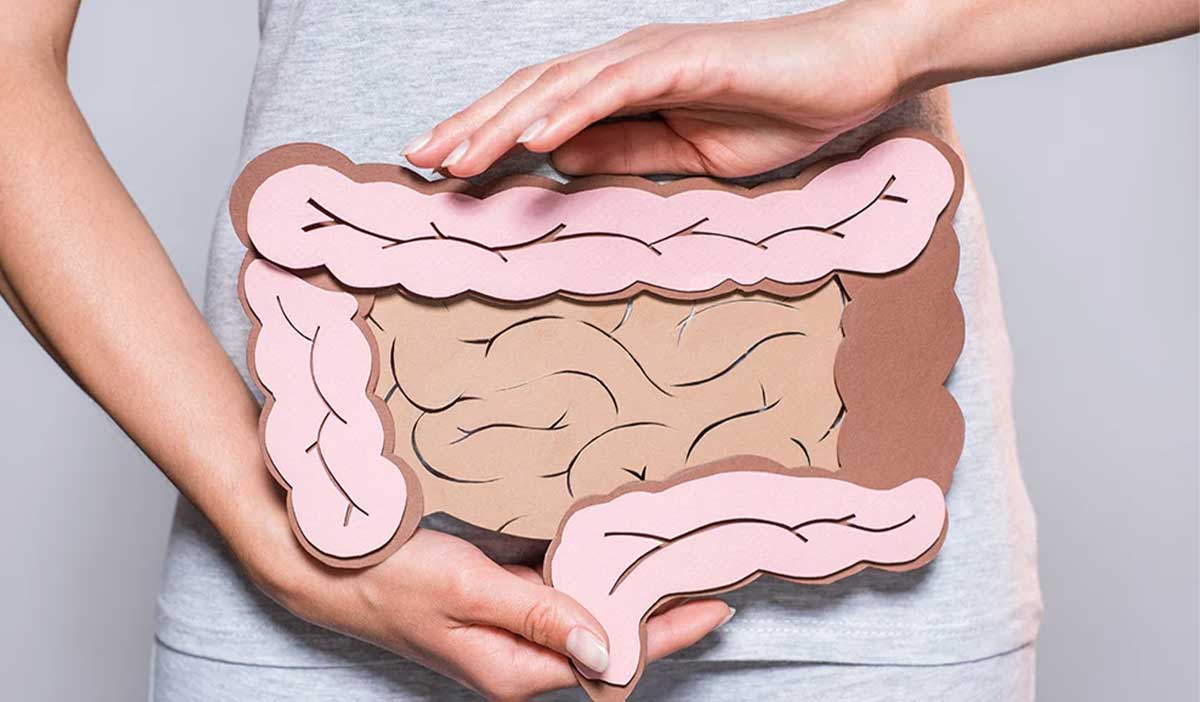Migraines, an irritable bowel, eczema, chronic fatigue, food allergies, joint pain, and uncomfortable digestive issues are all common signs that your body might be battling what some refer to as “leaky gut syndrome.”
When it comes to diagnosing conditions that affect gut health, leaky gut syndrome is a relatively new expression used by some in the medical community to explain stomach imbalances and problems caused by intestinal permeability (or intestinal hyperpermeability).

Though much about this disorder still under debate, among many scientists and doctors there is one area where they all agree: the standard American diet—often low in fiber yet high in sugar and saturated fat—is almost always to blame.
When your intestines don’t produce the right enzymes necessary for proper digestion, your body won’t be able to absorb essential nutrients from food. This deficiency causes hormone imbalances and weakens your immune system, which in turn leads to inflammatory and allergic reactions.
It’s also possible (though it’s less frequently the primary cause) for this type of gastrointestional dysfunction to be sparked by heavy alcohol use, stress, smoking, lack of sleep, and medications, including antibiotics, steroids, and over-the-counter pain relievers.
Also, some people are genetically more sensitive to digestive system changes. For those individuals, it’s even more important to be proactive in fighting the causes of inflammation.
Why is inflammation dangerous
Inflammation is a process your body goes through to protect itself from injury and infection, and it plays a big part of the healing process. For instance, if you introduce strength-training into your exercise program, it’s inflammation that will help your muscle tissue grow and heal.
But, inflammation isn’t always your friend. Inflammation becomes problematic when it doesn’t go away. Medical professionals refer to this as chronic inflammation, and it is a condition that often leads to leaky gut syndrome.
Though everyone has a small amount of inflammation in their body, here’s some good news: you can adopt a healthy diet and reduce your stress to help keep chronic inflammation—and its dangerous side effects—at bay.
How to get a healthier gut and fight inflammation with food
One recipe for reclaiming your gut health is to work with your doctor to create a plan to remove or reduce foods and drinks that cause inflammation—or that can make it worse—from your diet, including:- Alcohol
- Refined sugars and artificial sweeteners
- Soda
- Fried foods
- Gluten, especially foods made from refined wheat flours (e.g., white bread and muffins)
- Processed meats (e.g., cold cuts and bacon)
- Dairy products
- Processed foods, especially junk foods (e.g., canned soups, potato chips, sugary cereals, and pretzels)
To nourish your body, grow healthy gut bacteria, reduce pain, and make your diet as protective as possible, fight inflammation by going beyond just eliminating what’s bad and start to incorporate more of what’s good.
Add more healthy, anti-inflammatory foods to your meals. Some foods that have the potential to help your body fight leaky gut syndrome include:
- Fresh fruits (e.g., blueberries, apples, pineapple, and cherries)
- Leafy green vegetables (e.g., spinach, cabbage, kale, and collards)
- Fermented vegetables (e.g., kimchi and sauerkraut)
- Raw nuts and seeds
Adopting a more nutritious, balanced diet doesn’t just help fight inflammation, it also can help you feel better and lessen your chances for other diseases or health issues too, without the risk of any side effects.
Where to turn for help
Think you may have leaky gut syndrome? Make an appointment with your doctor. If it’s necessary to see a specialist to reduce your pain and get you back on track and feeling better, your primary care provider may refer you to a gastroenterologist with the expertise to help you fight leaky gut syndrome and start building better.
You might also like:



